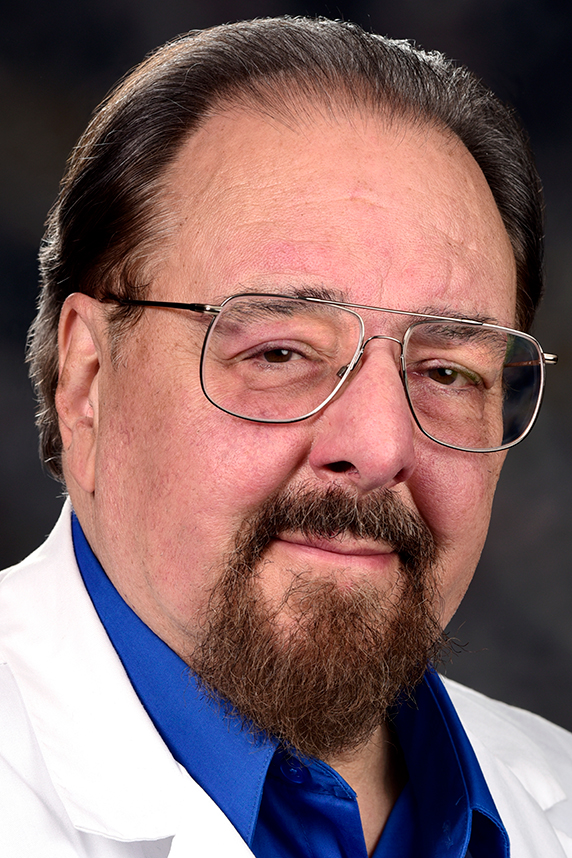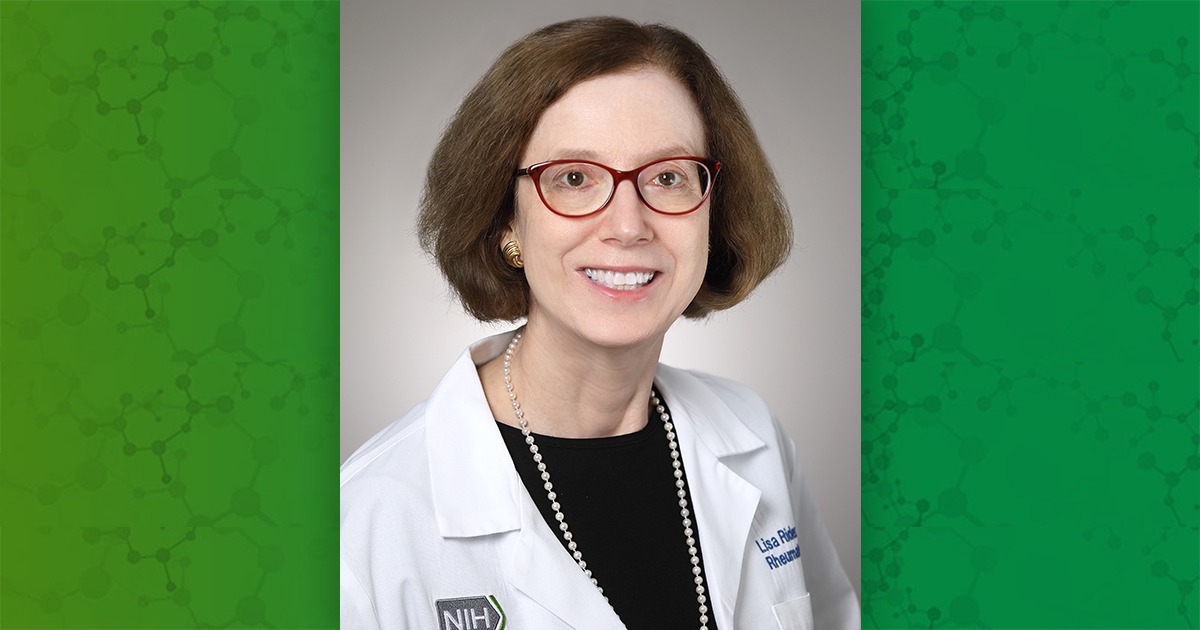Lisa Rider, M.D., head of the NIEHS Environmental Autoimmunity Group, received the Excellence in Investigative Mentoring Award at this year’s annual American College of Rheumatology conference, held Nov. 10-14. She was a recipient of one of 11 Awards of Distinction given annually to recognize leading researchers, clinicians, mentors, and other professionals for their superior commitment to the advancement of the field of rheumatology.
The Excellence in Investigative Mentoring Award recognizes the importance of the mentor-mentee relationship and the mentor’s influence on the successful development and career of mentees. Rider was honored for her outstanding and ongoing mentoring within rheumatology.
Throughout her career, Rider has mentored numerous trainees. She has overseen high school and college students in clinical and translational research in the NIEHS Summers of Discovery program, students of all levels through the group’s Special Volunteer program, and pediatric rheumatology fellows and Ph.D. students in research training fellowships offered through foundations like The Myositis Association and the Cure JM Foundation.
She has also worked with adult and pediatric rheumatology trainees at a myositis clinic she co-founded at George Washington University, as well as through the National Institute of Arthritis and Musculoskeletal and Skin Diseases (NIAMS) and Walter Reed National Military Medical Center adult rheumatology training programs.
Rider co-leads the International Myositis Assessment and Clinical Studies Group (IMACS), a global myositis collaborative group that has a mentoring and training program. In addition, she provides guidance to pediatric rheumatologists through the Childhood Arthritis and Rheumatology Research Alliance (CARRA) and Pediatric Rheumatology Collaborative Study Group (PRCSG), both North American pediatric rheumatology consortiums.
Rider regularly receives calls from leading pediatric rheumatologists around the world seeking her guidance on how to treat complex patients.
“I am deeply honored and humbled to receive this award, which came as a great surprise,” she said. “I think it reflects on the success and contributions of many of these trainees.”
An expert in myositis
 Miller has worked for four decades on the study of autoimmune diseases, serving as a Principal Investigator and Deputy Clinical Director at NIEHS and head of the institute’s Environmental Autoimmunity Group before shifting roles to scientist emeritus in April 2021. (Photo courtesy of Steve McCaw / NIEHS)
Miller has worked for four decades on the study of autoimmune diseases, serving as a Principal Investigator and Deputy Clinical Director at NIEHS and head of the institute’s Environmental Autoimmunity Group before shifting roles to scientist emeritus in April 2021. (Photo courtesy of Steve McCaw / NIEHS)Rider is an expert in juvenile myositis, a group of rare conditions that causes muscle inflammation and results in weak or painful muscles. For nearly two decades, Rider worked alongside NIEHS researcher Frederick Miller, M.D., Ph.D., who served as Head of the Environmental Autoimmunity Group until he retired in 2021 and she took over the post.
“We understand that these conditions are rare and have multiple genetic risk factors but also environmental risk factors,” she said. “Our job is to dissect these diseases and understand them.”
Rider and other researchers have showed that environmental factors such as UV exposure, smoking, psychological stress, air pollution, silica and other occupational exposures, and diet may play a role in the illnesses. “We’re still very much in the middle of studying these different risk factors,” she said.
Research aimed at prevention, treatments
A number of presentations at the American College of Rheumatology conference focused on environmental factors that could influence autoimmune conditions. For example, a talk given by NIAMS grant recipient Karen Costenbader, M.D., M.P.H., examined the effect of processed food on the risk of systemic lupus in women. Another presentation discussed how inhaled particles at work could serve as a risk factor for developing rheumatoid arthritis, particularly if the patient has a genetic predisposition to the disease and smokes. Yet another study explored the potential link between smoking and the risk of women developing a condition called polymyalgia rheumatica.
The results of these studies, as well as other ongoing research, could one day help scientists and clinicians develop better treatments and prevention strategies for these conditions.
“The ultimate goal is to understand which particular individuals have the highest risk based on their genetic backgrounds and their previous exposures, and then consider how to best provide preventative approaches,” said Miller, who now serves as scientist emeritus of the Environmental Autoimmunity Group.
(Susan Cosier is a contract writer for the NIEHS Office of Communications and Public Liaison.)
Source link
factor.niehs.nih.gov


